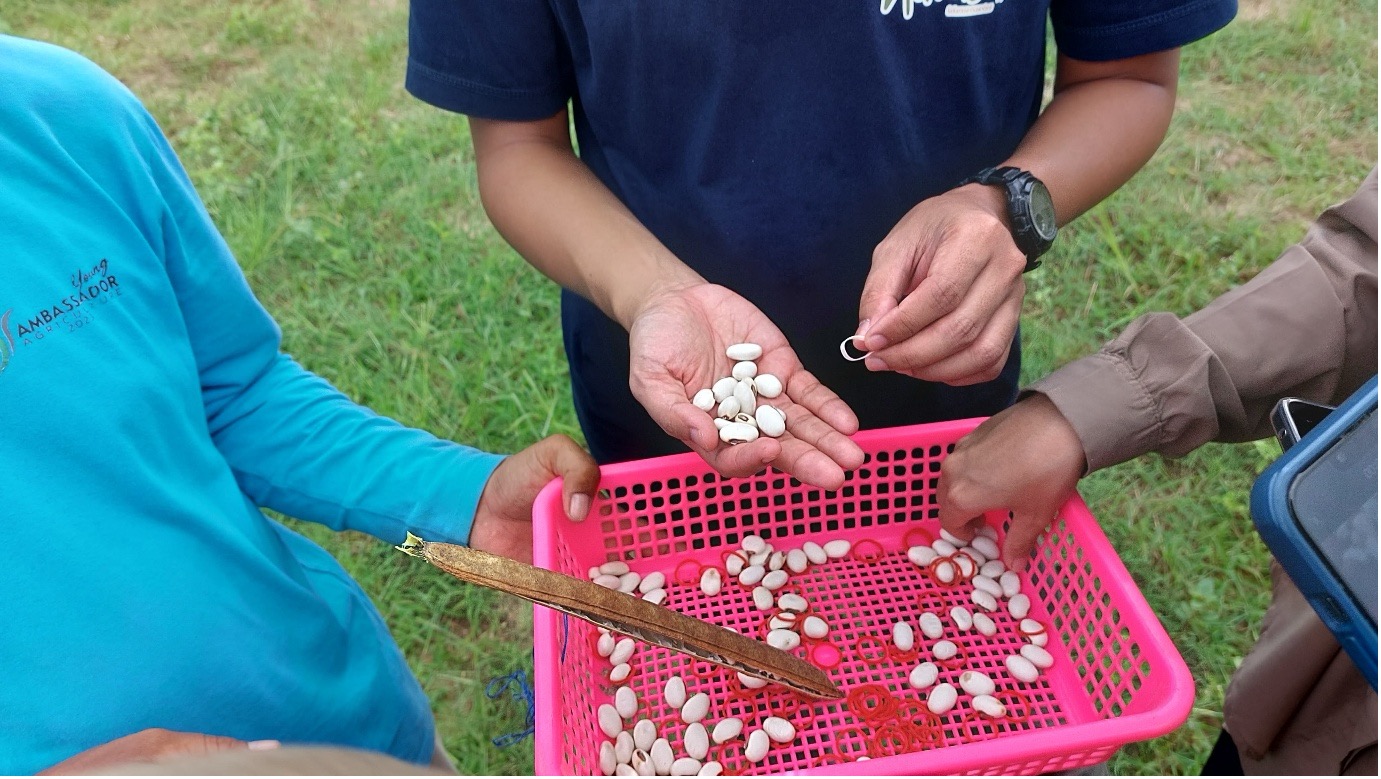
Did you know that nearly 90% of soybeans (3 million tonnes) in Indonesia are still imported? Soybean is dominantly used to produce tempeh – a traditional food as one of the main plant protein sources with high nutritional value and has been consumed in Indonesia since the 16th century. The consumption of tempeh in Indonesia holds deep historical and cultural significance, yet ironically it currently relies on imported soybean from North and South America. GAIN Indonesia is currently working in 2 provinces on diversifying bean supply for tempeh production to increase resilience of tempeh production.
Jack bean as an alternative legume
In 2024, GAIN Indonesia conducted a Value Chain Analysis (VCA) study on four alternative local beans and found that jack bean tempeh most closely resembles soybean tempeh. Jack beans are highly adaptable to harsh environmental conditions, including drought, nutrient-depleted and highly leached soils, and high temperatures.
The VCA study assessed industry readiness by analysing the economic leverage generated throughout the production process. It also examined supporting activities that contribute to the overall industry ecosystem. The study also assessed the market readiness of four alternative beans and found jack beans as a potential alternative legume for scaling up the production of alternative tempeh, through interventions across the value chain. These include enhancing the raw material supply through farmer partnerships, providing specialized production training and equipment, and increasing consumer awareness through educational campaigns—all essential to addressing current challenges and leveraging market opportunities for sustainable growth.
Bring it all together: Kicking Off the Alternative Tempe Project
In March 2025, GAIN Indonesia held a Kick-off Event and Focus Group Discussion (FGD) to launch the Alternative Tempeh Project as an initiative to promote the production and consumption of jack bean and mixed bean tempeh as a sustainable alternative protein source. Through this project, GAIN is supporting two Small Enterprises (Rumoh Pangan Aceh and Rumah Pangan Nusantara) in Aceh and West Java, by providing seed funding, business consultant, consumer research, and marketing agency – to build businesses ecosystems for alternative tempeh.
The Power of Collaboration
In Aceh, we started with a Kick-off Event and Focus Group Discussion (FGD) titled "Enhancing and Promoting the Production and Consumption of Mixed Bean Tempeh (Jack Bean–Soybean) in Banda Aceh and Aceh Besar." This event was attended by 30 multi stakeholders from policymakers, private sectors, and academics – who provided input and partnerships offers to our project.
Meanwhile, in West Java, GAIN—in collaboration with Rumah Pangan Nusantara (RPN) and with full support from the Bogor City Food Security and Agriculture Agency— also organized an FGD titled "Supporting the Utilization of Local Food – Jack Bean for Enhancing the Production, Consumption, and Promotion of Jack Bean Tempeh and Mixed Bean Tempeh (Jack Bean–Soybean)." The event involved a wide range of stakeholders, including relevant government agencies, academia, partner farmers, tempeh producers, and potential sellers. The discussions focused on gathering input from stakeholders to explore opportunities and challenges in producing the jack bean tempeh—covering aspects from cultivation and production to marketing and promotion.
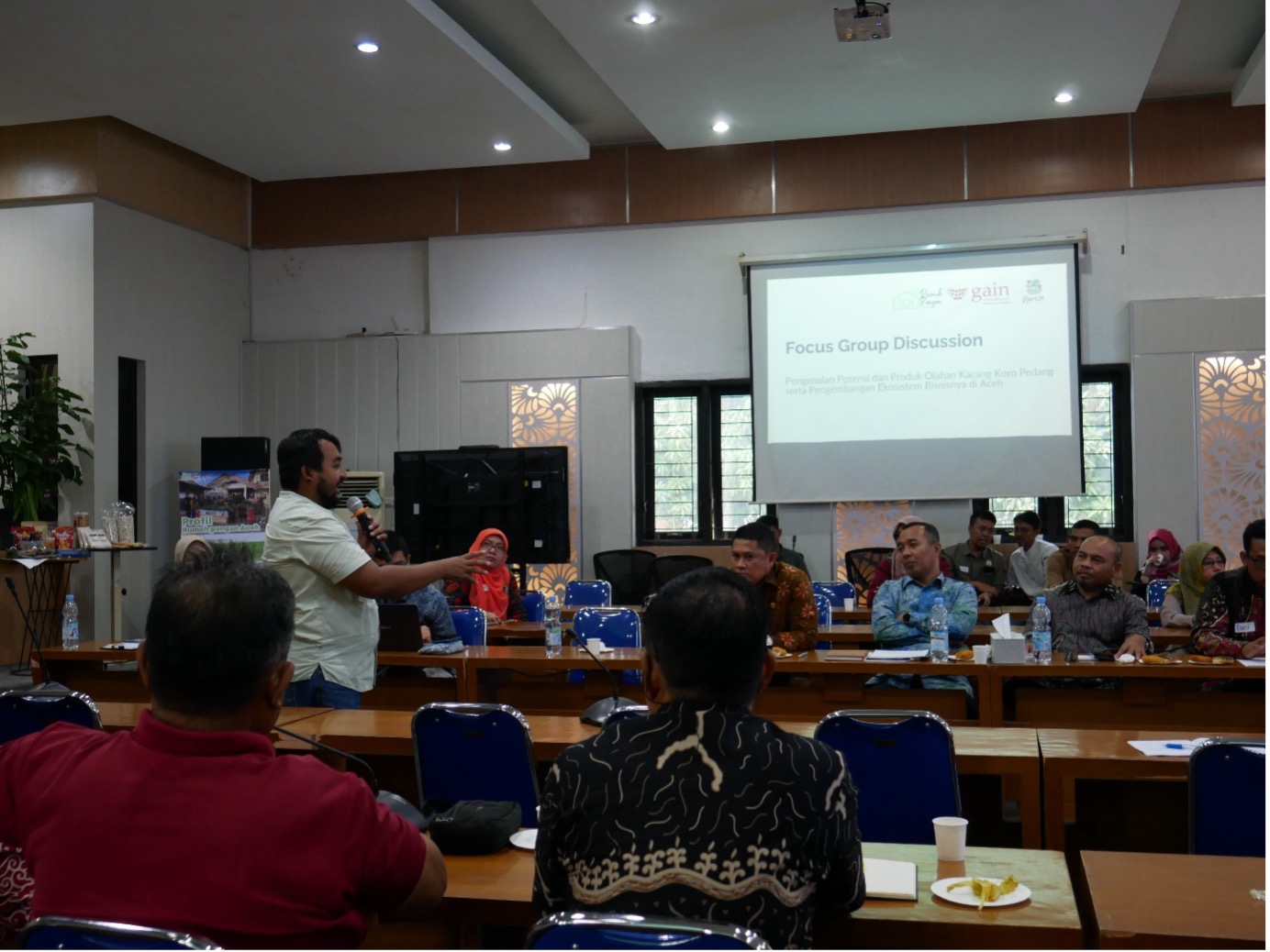
The Focus Group Discussion (FGD) in Aceh
From Curiosity to Commitment – Partnerships for Growth

“This is interesting, knowing that jack bean is a resilient crop, and I like the concept of tempeh from the local bean”
Meet Radi, one of our partner farmers who has taken the initiative to grow jack bean in his farm. He is a young farmer from Aceh and the first in the area to try cultivating jack bean. Radi has planted jack bean since January 2025 and just harvested it in May. He is currently replanting it to increase jack bean production.
To date, RPA has established partnerships with more than 20 local farmers to cultivate jack bean in 5-hectare land, aiming to expand farmland up to 10 hectares for production. Besides, RPA also works on 3 hectares land dedicated to seedling nursery. In processing stage, RPA has initiated two collaborations with tempeh producers in Banda Aceh and Aceh Besar districts, to produce mixed jack bean soybean tempeh. RPA is also building a new tempeh production unit which is run by a vulnerable women group impacted by climate change impacts.
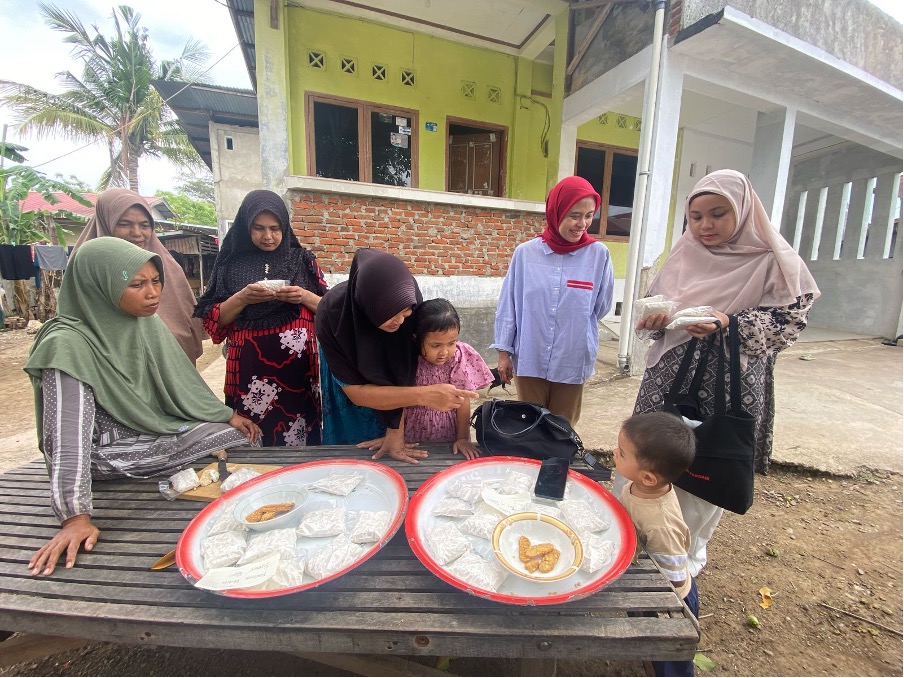
Excitement from The Women Group for Tempeh Production Unit in Aceh
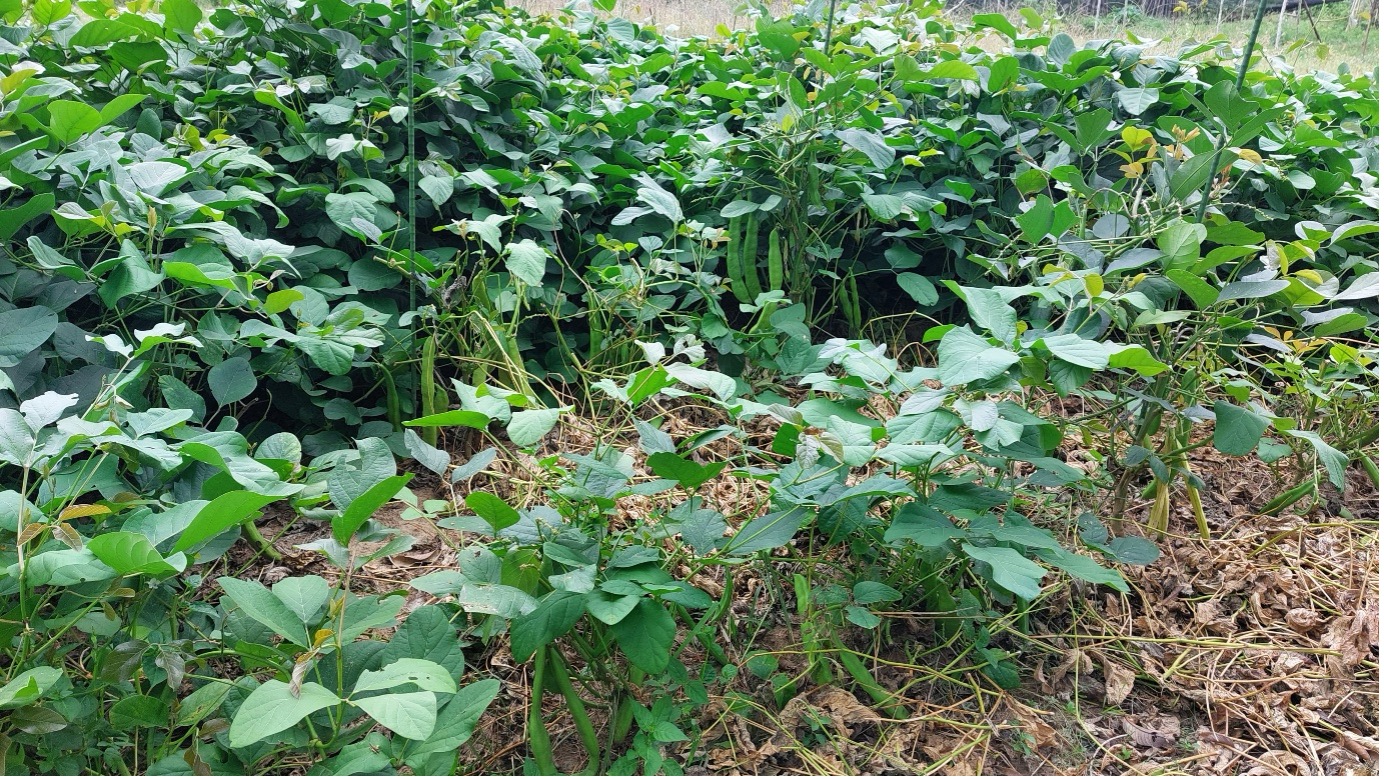
In West Java, to date, RPN also has been working with 60 farmers in 15-hectare land to cultivate jack bean with intercropping approach. RPA and RPN are actively providing training to the farmers for best practices in jack bean cultivation. RPN has been one of the pioneers in jack bean tempeh production since 2021 and remains committed to producing and promoting jack bean tempeh.
Big harvest time is coming! What’s Next?
The first big jack beans harvest is scheduled from June to September this year. We expect to harvest more than 30 tons of jack bean. This will be continued with the jack bean and mixed bean tempeh production in Aceh and West Java. Currently, we are also conducting consumer research to support marketing strategies of the tempeh.
We believe that increasing the production and consumption of alternative tempeh can contribute to building a more sustainable and resilient food system in Indonesia. Tempeh can be a game-changer for a more sustainable protein source. Stay update on the Jack Bean Tempeh stories and join and support us in promoting this sustainable protein source!
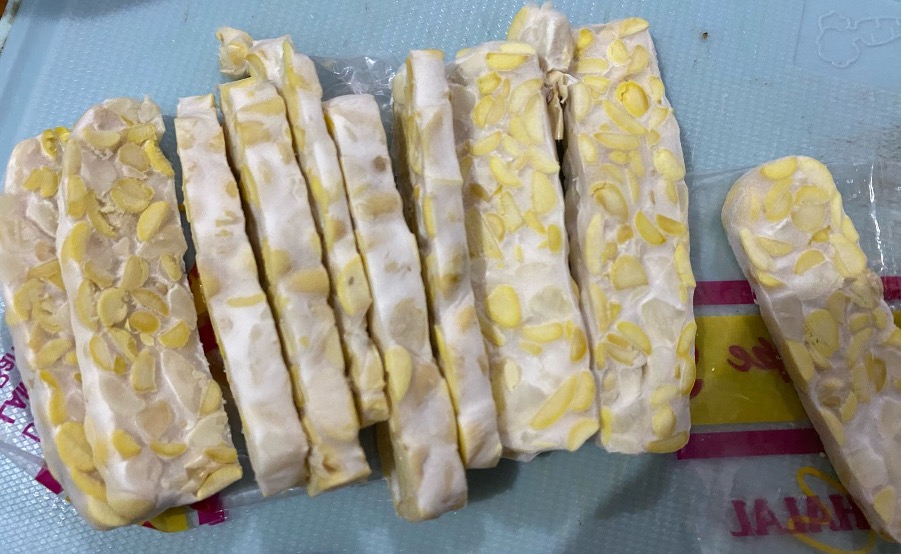
The mixed-bean tempeh produced by the Women Tempeh House and tempeh producers in Aceh